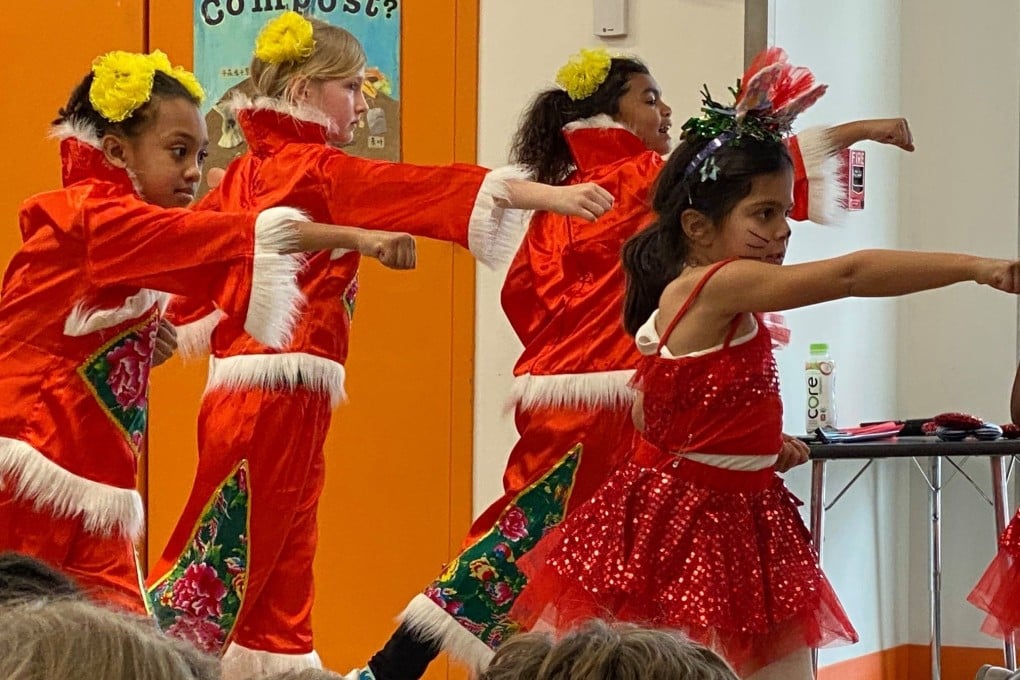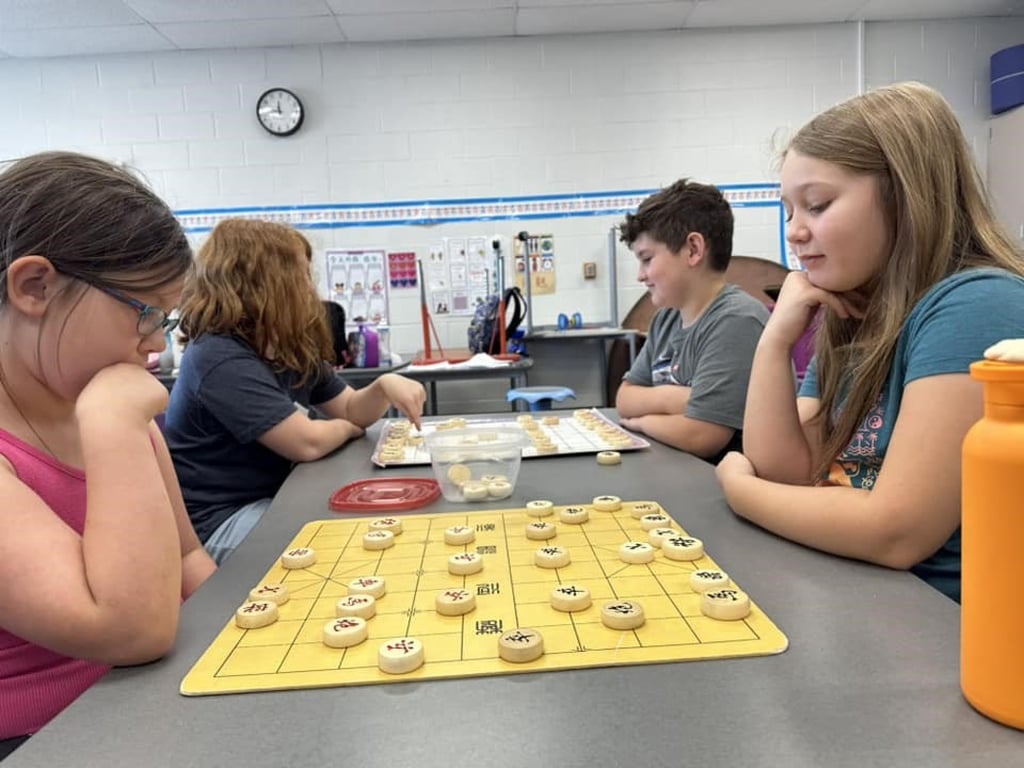Advertisement
Mandarin immersion programmes persist in American schools despite high-level US-China tensions
- From Utah to Michigan, half-day programmes in which regular classes are taught entirely in Chinese find fervent support among parents
- Desire for children to get global perspective and life opportunities drives demand
6-MIN READ6-MIN
20

Bochen Hanin Washington
What does Washington, DC, have in common with Provo, Utah? Or Greenville, Michigan? Or Overland Park, Kansas?
All are home to publicly funded Mandarin immersion programmes, where kids as young as three years old spend half of each school day taking their regular classes – like math, science or physical education – entirely in Chinese.
Most of the programmes began during a period of American engagement with China under the administration of Barack Obama, when Mandarin was increasingly seen as a language of global business, optimism for bilateral cooperation was the norm and federal grants for Chinese language learning were more abundant.
Advertisement
In 2015, Obama pledged that by 2020, 1 million American students would be learning Mandarin.

Eight years later, to say the dynamics have shifted would be an understatement.
Advertisement
Sino-US tensions now cast doubt over business opportunities in the mainland, while record-high proportions of Americans view China negatively.
Advertisement
Select Voice
Select Speed
1.00x